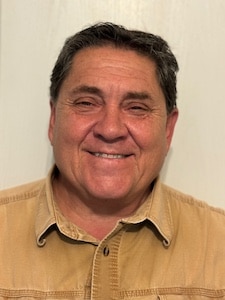Roots Plus helping trees stand tall

A St. Louis businessman with deep roots in Monroe County is offering assistance for folks looking to keep their trees and shrubs happy and healthy for a long time to come.
Though based out of St. Louis, Roots Plus: Innovative Root Solutions is the creation of Stan Clement, who made his home in Illinois for some years.
Originally from East St. Louis, Clement came to Waterloo when he was 12 years old, graduating from Waterloo High School and quickly entering the U.S. Marine Corps for four years.
At the end of his service, he settled down in Columbia, his three daughters graduating from Columbia High School.
He lived in the community up until 2006 when he moved to Crestwood, Mo., though he still has ties to Columbia.
Beginning around 2009, Clement stepped into the world of agriscience as his second cousin Ron Smith of AgriGro in Doniphan, Mo., gave him a tour of his company’s plant and sparked a newfound interest in biotech.
Clement wound up starting his own similar business with Enviromag Products, selling and marketing various biostimulants, seed minerals, food-grade fertilizers and other such materials.
Having started out supplying agriculture supplies, Clement said the products he’s sold for years are now among the materials he incorporates in his more direct tree and bush maintenance with Roots Plus.
His newer business also came about at the recommendation of his cousin along with Clement’s realization that his unique approach to plant care could prove to be a good business model.
“Roots Plus started primarily to fertilize and allow trees to thrive as opposed to simply survive, utilizing these products and application methods that we use that are unique in the industry,” Clement said.
He noted the use of liquefied sea minerals, specialized fertilizer and highly beneficial bacteria in his products and Roots Plus’ care services.
Clement placed a particular emphasis on the bacteria as a core part of the business’ treatment offerings as they do a great deal of the heavy lifting when it comes to a plant’s health, improving the soil profile and allowing the tree or shrub to better take care of itself.
“By incorporating the beneficial bacteria with our grouping of products, these beneficial bacteria break these different minerals and nutrients down and make them soluble for a plant or crop’s production,” Clement said. “The plant can then synthesize these minerals and produce a different enzyme which is extremely healthy to the plant.”
Clement expressed great pride in the Roots Plus approach to plant health and the process which allows a tree’s health to improve without synthetic inputs.
When it comes to Roots Plus’ experience so far, Clement spoke about how effective the company’s treatments have been in not only improving and prolonging plant health but also providing a defense against pests.
He spoke about different trees being affected by various insects, particularly wasps laying their eggs on the branches of oak trees, stinging the branches to produce the material for their nests and, in turn, choking off the flow of nutrients through the branch.
As he described, his treatments are able to elevate the BRIX level of plants – a measure of various vitamins and minerals in a plant indicating its overall health – which, at a certain point, makes the plant effectively toxic to insects, thus preventing wasps and other pests from harming it.
Speaking further on the science of Roots Plus treatments and care he has provided for trees, shrubs and even wheat fields, Clement bemoaned how unaware many farmers seem to be about the efficacy of non-synthetic approaches to plant care.
“You talk to farmers about biologicals and so many of them know absolutely nothing about it,” Clement said. “They’re so focused on NPK or fertilizer. The biologicals do all the heavy lifting.”
Currently, Roots Plus offers services ranging from tree and shrub/bush fertilization and treatment to some more traditional options of tree trimming and removal or planting as well as stump grinding.
Pointing to the efficacy of his company’s treatments, he said he guarantees that any payment for fertilization treatment will go toward the tree’s removal should the tree die anyway.
He said he wants customers to feel comfortable that their money isn’t being wasted should they try to save a tree that looks to be in poor health, adding that Roots Plus has only had to follow through on this guarantee four times since 2016.
While Clement expressed his confidence in the Roots Plus approach to tree care, he also noted that, just like with people, it’s best to care for a plant’s health before it gets desperately sick.
“The best thing to do is, if you have a healthy tree, go through the treatment process and have that tree fertilized and treated utilizing our products and our methodologies, and that tree will remain healthy for years,” Clement said. “You won’t have to worry about nursing it back to health like you will if you wait too long.”
For more information on Roots Plus, visit rootsplusllc.com, email stan.rootsplus@gmail.com or call 314-440-3662.






